The average cost of Chemotherapy in London approximately starts from USD 41500
Treatment cost
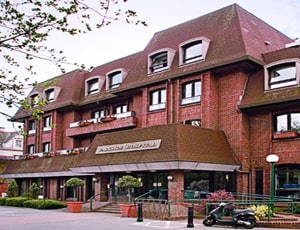
Apart from in-detail treatment procedures available, Parkside Private Hospital located in London, United Kingdom has a wide variety of facilities available for International Patients. Some of the facilities which are provided by them are Accommodation, Airport Transfer, Choice of Meals, Interpreter, SIM, TV inside room. Also listed below are some of the most prominent infrastructural details:
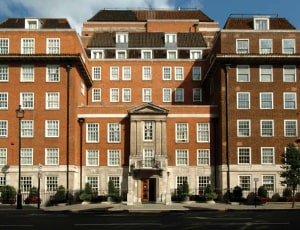
We, The London Clinic family, take pride in our reputation as a multi-disciplined healthcare facility. With skilled nurses and expert consultants, our medical teams are always focused to deliver the best individualized medical care. More than 1,000 nursing, clinical, and support staff are currently working with us to give our patients an extensive range of treatments. We use cutting-edge technologies to ensure a comprehensive range of healthcare services. Not only that, in order to make your stay with us comfortable enough, we equip our patient bedrooms with:
Patients from all over the world fly to us to get their procedures done by our specialist doctors, which is why we also provide our patient's concierge services. Our concierge services include:
The London Clinic has a zero-tolerance policy when it comes to hygiene and cleanliness. Our dedicated housekeeping team cleans every room every day between 8.00 am and 5.00 pm. They are also entitled to supply fresh towels every day and clean the rooms properly between patients.
We also have a day surgery unit based on the third floor at 20 Devonshire Place to make sure a hassle-free surgery as well as post-surgery care for our patients. Our cancer care unit at 22 Devonshire Place is also among our key services.
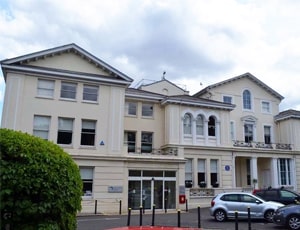
Apart from in-detail treatment procedures available, Cancer Centre London located in London, United Kingdom has a wide variety of facilities available for International Patients. Some of the facilities which are provided by them are Accommodation, Airport Transfer, Choice of Meals, Interpreter, SIM, TV inside room. Also listed below are some of the most prominent infrastructural details:

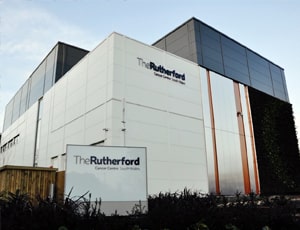
Apart from in-detail treatment procedures available, Rutherford Cancer Centre South Wales located in Wales, United Kingdom has a wide variety of facilities available for International Patients. Some of the facilities which are provided by them are Accommodation, Airport Transfer, Choice of Meals, Interpreter, SIM, TV inside room. Also listed below are some of the most prominent infrastructural details:
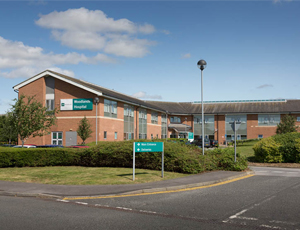
A 38-bedded hospital, Woodlands Hospital is supported by about 150 experienced doctors. It provides the highest standards of modern medical care and is BUPA accredited for its breast care services. All the staff at the hospital are totally committed to ensuring that patients are confident and comfortable with all aspects of their visit. It has resident medical officers available 24/7. Woodlands Hospital has an MRI scanner, an endoscopy unit, and a fully equipped gymnasium in addition to the two laminar flow theaters. It treats NHS-funded patients besides self-funding and insured patients. The hospital has access to the latest equipment and offers private facilities to patients in Richmond, Darlington, and Barnard Castle.
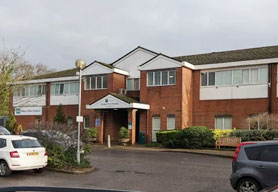
Bishops Wood Hospital is a 42 bedded acute care unit located in Middlesex, UK. Offering treatment and diagnostic services for more than 25 specialties, the hospital was established to offer the highest standard of care and services to patients from across the world. The hospital is a part of the private Circle Healthcare Group, which is a leading provider of state-of-the-art healthcare services and has multiple hospitals and clinics across the world.
The hospital has over 120 specialists and surgeons working with them to provide a variety of surgical and non-surgical treatments to people. The hospital is particularly known for a variety of orthopedic procedures that are carried out, including knee and hip surgery, hand and wrist surgery, foot and ankle surgery, and shoulder and elbow surgery. The hospital has been instrumental in slowly expanding its medical service and now offers treatments to patients requiring primary, secondary as well as tertiary care.
The hospital boasts of its team of medical and nursing staff, which is available 24 hours a day. Every medical specialist is a part of a multidisciplinary team, which includes specialists from the in-house radiology and physiotherapy department.
Facilities Provided:
Chemotherapy is a category of standardized drug administration of various types for the treatment of cancer. With a curative intent, some combinations of drugs are administered to a patient to prolong their life and also to bring about a reduction in the symptoms shown by the patient. Chemotherapy treatment is considered to be one of the major categories of medical oncology. Many people around the world are prescribed to undergo chemotherapy treatment instead of undergoing a surgical procedure. But many are frightened with the side effects of this treatment as it is believed to reduce the quality of life of the patients.
Chemotherapy is a procedure where non-specific intracellular poisons are used, which are specifically related to preventing the process of mitosis or the natural cell division of the cancerous cells. This technique rather excludes those agents that are responsible for selective extracellular growth signal blockade (signal transduction blockers). If spoken about these agents used in chemotherapy, it has been found that most of them are cytotoxic in nature due to their property of interfering with natural mitosis. However, the cells of cancer can differ widely in terms of showing susceptibility to these administered agents.
Chemotherapy can be defined as a way of mass destruction of stress cells, which would eventually lead to the death of the cells when apoptosis is initiated. The commonly known side effects of chemotherapy can be traced back to the process of damaging normal non-cancerous cells, which are in the process of rapid division. They are sensitive to anti-mitotic drugs that are being administered to the patient and such cells may include the cells of the hair follicles, digestive tract lining, and bone marrow. But nowadays treatment options have undergone a lot of modification by which these side effects can be well countered.
Various options of drugs are available to treat different types of cancer including the following:
Alkylating agents: These kinds of agents prove to be extremely beneficial during the cell’s resting phase. The various kinds of alkylating agents that are employed in chemotherapy treatment include the following:
Nitrosoureas are unique from the rest for choices in chemotherapy treatment due to their ability to cross the blood-brain barrier and treating tumors of the brain.
Plant alkaloids: Plant alkaloids employed for chemotherapy treatment are derived from plants. These include vinca alkaloids, taxanes, podophyllotoxins, and camptothecan analogs. The plant alkaloids are cell cycle specific agents, which enables them to attack the dividing cells in various stages of their division cycle.
Antimetabolites: This kind of chemotherapy treatment involves substances that are similar in composition to the normal substances present in the cell. When these substances get incorporated in the process of cellular metabolism, then the cell is no longer able to divide. They are also cell cycle specific and can be classified further according to the substance in the cell with which they interfere.
Topoisomerase inhibitors: When the topoisomerase enzymes in the body ( topoisomerase I and II) are inhibited as a result of chemotherapy drugs, then those drugs are referred to as topoisomerase inhibitors. During the chemotherapy, the topoisomerase enzymes are responsible for controlling structural manipulation of the DNA which is necessary for the purpose of replication.
Miscellaneous antineoplastics: Different types of drugs make each chemotherapy treatment process unique. Enzymes, retinoids, adrenocortical steroid inhibitor, ribonucleotide reductase inhibitor or antimicrotubule agents can be used as chemotherapy drugs.
Some of the chemotherapy drugs are involved in damaging the cell at the time of splitting while others do their jobs when the gene copies are being made by the cell prior to division. The cells that are in resting phase are very less likely to get damaged. Different kind of drugs damage the cells at different stages and hence a combination of various drugs will increase the chance of damaging more number of cancer cells.
Chemotherapy drugs can be given in a variety of ways. At times due to the destructive nature of stomach enzymes, some of the drugs are impossible to administer as pills. While for other drugs the effects are better realized when administered intravenously. Some of them can be injected into muscles while other can be given directly to the abdominal cavity and bladder directly.
They are administered orally and are available in various forms such as liquids, tablets, capsules, and pill. All these forms can be absorbed by the stomach or under the tongue. The protective coating around them is broken down by digestive juices of the stomach and then the medication is directly absorbed by the lining of the stomach. There are some which have a certain amount of time delay between the administration and the actual release of the medicine.
With the help of a short needle, the drug is administered into the region between the muscle and skin but it does not penetrate as far as the layer of muscles. They are used for some biologic response modifiers and support drugs of chemotherapy. If the platelet count of the patient is low, then it is less likely that such injections can cause any bleeding more than that in case if it was an intra muscular injection.
In this case, the injection penetrates the muscle layer and a large needle has to be used for this so that the medication gets deposited in the tissues of the muscle. Most chemotherapy cannot be implemented via intramuscular injection owing to its harshness. People with low platelet counts are not advised with this due to the possibility of bleeding within the muscle.
This also gets absorbed rapidly in the circulation system in the body. It offers more flexibility, thus making it more common. Continuous infusions are ensured through this method for days and weeks if required. Some of the types of intravenous infusions include the following:
In this procedure, the drugs are meant to reach the cerebrospinal fluid. The blood-brain barrier stops many drugs to reach it and hence in two ways it can be done; one is the lumbar puncture and the other is Ommaya reservoir. A dome-shaped device with a catheter attached is placed in the subcutaneous layer on the scalp. It is threaded to the lateral ventricle of the brain. A small needle is placed through the ommaya reservoir to inject drugs. This is good for chemotherapy for leukemia.
In this case, the drug can be directly drained into the abdominal cavity, the general cavity surrounding the organs. The organs, as a result, get bathed in the medication before it gets absorbed into the tumor site.
Here the drug is given directly to the artery supplying blood to a tumor. This kind of treatment is beneficial for colon cancer, limb melanoma, pancreatic cancer, gastric cancer, and some other forms of cancer.
A urinary catheter is used to access the urinary bladder and useful for people suffering from superficially invasive bladder cancer.
This is the chemotherapy for lung cancer where the drug is administered in the pleural cavity to control malignant pleural effusions and used for symptom relief.
A gliadel wafer can be placed in the cavity after removal of tumor in the brain. It can be left for 2 or 3 weeks to ensure that all cancer cells are finally killed in the area surrounding the brain tumor site.
In this case, a cream is applied to the skin and used to treat cancerous lesions on the skin itself. Not used very commonly but used for treating skin cancer.
Ask your healthcare adviser for the best multiple options and choose the one that meets your expectations
The minimum cost of Chemotherapy in London is about $41500. Only some of the best and certified hospitals in London perform Chemotherapyation for international patients.
Chemotherapy cost in London varies from one hospital to the other. The Chemotherapy package cost usually includes all the expenses related to pre and post surgery expenses of the patient. The Chemotherapy package in London includes the fees of the surgeon, hospitalization and anesthesia as well. There are many things that may increase the cost of Chemotherapy in London, including prolonged hospital stay and complications after the procedure.
There are many hospitals across the country that offer Chemotherapy to international patients. Some of the best hospitals for Chemotherapy in Londoninclude the following:
After Chemotherapy in London, the patient is supposed to stay in guest house for another 20 days. During this time, the patient undergoes medical tests and consultations. this is to ensure that the treatment was successful and the patient us safe to return.
While London is considered to be one of the best destinations for Chemotherapy owing to the standard of Hospitals, and expertise of doctors there are a select few destinations that provide comparable quality of healthcare for the procedure. Some of such cities are:
Apart from the cost of Chemotherapy, the patient is also required to pay additionally for daily meals and guest house accommodation. These are the charges for daily meals and accommodation outside the hospital. The per day cost in this case may range from 55 USD.
After the Chemotherapy surgery takes place, the average duration of stay at the hospital is about 1 Days. During the recovery, the patient is carefully monitored and control tests are performed to see that everything is okay. If required, physiotherapy sessions are also planned during recovery in hospital.
There are around 3 Hospitals hospitals in London that offer Chemotherapy to international patients. These hospitals have the required infrastructure and a decided Chemotherapy unit where renal failure patients can be treated. These hospitals comply with all the rules and regulations as dictated by the regulatory bodies and medical association in London
Some of the most sought after doctors for Chemotherapy in London are:
London has one of the best public healthcare systems in the world. The hospitals have state-of-the-art infrastructure and comprise skilled medical staff. The United Kingdom ranks 5th out of 46 countries according to the Medical Tourism Index. London being the capital attracts a substantial portion of patients seeking highly advanced and latest treatments. The city boasts many internationally acclaimed hospitals. The National Health System or NHS, one of the world's largest public health systems regulates the different aspects of the healthcare system in the UK including London. It helps in maintaining high standards of healthcare in the city. Some of the healthcare services provided by the hospitals in London include cancer treatment, infertility treatments, oral surgery, mental healthcare, geriatric care, ENT treatment, and cardiac surgery.
The hospitals in London provide a range of healthcare services delivered by exceptionally skilled and well-trained medical staff. Some of the top hospitals in London include:
The doctors in London are highly-skilled, well-trained, and experienced professionals who have completed their education and training at reputed institutions. Some of the best doctors in London are:
London has excellent connectivity with the rest of the world. You can reach London by air road or rail. Heathrow airport is located around 25 km from London and is the main airport. If you are planning to avail your treatment here then we can help you with your medical travel.